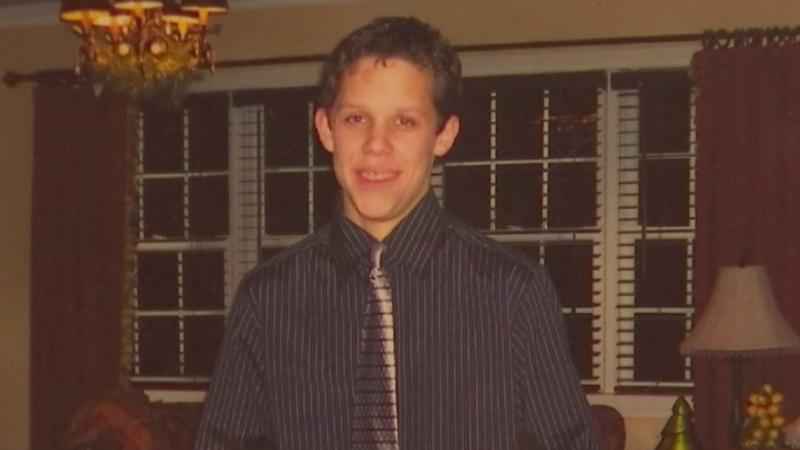Queensbury mom pushes for better drug warnings after son’s suicide
[anvplayer video=”4599479″ station=”998132″]
Suicides linked to an asthma drug. It’s a story NewsChannel 13’s Benita Zahn first brought you 11 years ago. That story raised awareness for local doctors and pharmacists.
The woman at the heart of the story is Kate Belden-Miller. The mom from Queensbury lost her 15-year-old son, Cody, to suicide. She believes it was triggered by the drug Singulair – and she’s met many others who’ve lost children the same way.
Over the past 11 years, she’s been on a mission to improve the warning on the drug to spare others her pain – and she joined forces with Parents United for Pharmaceutical Safety and Accountability.
With a series of small victories under their belt, now Belden-Miller’s aiming to get the warning beefed up and the FDA is listening.
"I’m always wondering, you know, what life would have been," said Belden-Miller, talking about if her son hadn’t hanged himself just before family dinner on August 4, 11 years ago.

"You become, well, you’re not the mother anymore for sure, you know, as Cody’s mom," she said.
So she became a "warrior mom" – not to avenge her son’s death, but to prevent other parents from enduring this lifelong pain. You see, Cody took his life barely three weeks after he had started taking the drug Singulair for his seasonal allergies. The generic name for Singulair is montelukast. Belden-Miller never thought about a connection, but following his death, a relative found reports of other similar cases and Belden-Miller’s mission was born.
"People kind of put two and two together, you know, and doctors did too," she explained.
Working tirelessly on her own and with others to get language in the drug package inserts updated, she was moderately successful. However, it was short of a black box warning — something bold, eye-catching at the top of the consumer literature to say, "Hey, be alert to these specific changes in your child if they take this medication — including agitation and talking about suicide."
"Children are dying. They’re dying and they’re mentally being tortured for years before people figure out that this is their asthma drug," said Belden-Miller.
"At the age of 5, he actually had a suicide attempt where he jumped in front of a car," said another mom, Vanessa Sellick.
Her son, Harrison, survived his brush with death, but it linked two moms thousands of miles and oceans apart. Sellick lives in Australia, where that government had put out an official alert about a potential link between Singulair (montelukast) and suicidal thoughts around the time of her son’s failed attempt. A friend alerted her and Sellick pulled Harrison and her younger son, Austin, off the drug.
"The childcare center couldn’t believe the difference in him. He could regulate his emotions more than he was able to before — because they tend to get caught in this crying loop," said Sellick.
While Australia has upgraded its warning about the potential for neuropsychiatric side effects from Singulair (montelukast), there’s been no such change in the U.S.
"There’s no mandates for doctors to have to report if someone comes in and says they think that they’ve had an adverse reaction," noted Belden-Miller.
While that may limit the data the FDA needs to make warning changes, they have taken note.
The Pediatric Advisory Committee reopened its investigation in September 2018. In response to inquiries, NewsChannel 13 was told that the:
"FDA conducts post-marketing surveillance of adverse events to determine if new or more serious unknown risks emerge that would warrant further evaluation. At the September 20, 2018, Pediatric Advisory Committee meeting, Dr. Judy Cope (from FDA) informed the panel that FDA is reviewing the issue of neuropsychiatric events with montelukast. We will update the Pediatric Advisory Committee when the full analysis and review are completed, which is anticipated to be in 2019."
"There’s always room for improvement," said Assemblyman and Pharmacist John McDonald.
He has been among those getting the word out since Miller first launched her campaign.
He points out on September 20, 2018, drug maker Merck updated its online warning about neuropsychological risks, including suicide. They just put it on the top of what they’re sending the pharmacist.
"Further down, they get into more of the details of what the neuropsychiatric events truly are," said McDonald.
That’s pegged at pharmacists. While anyone can access that information, if you go to the consumer page, you have to scroll down almost four pages to find the update -– and suicidal thoughts are not listed on the top.
The information sheet consumers get with the drug is no better.
"There’s a lot that’s here. That’s the problem," said McDonald.
Highlighting concerns about suicide shouldn’t be that difficult.
NewsChannel 13 looked at an info sheet for the heartburn medicine Pepcid. You can’t miss the warnings – and this is for a drug you can buy over the counter as well as by prescription.
"Actually, it’s a better layout," acknowledged McDonald.
He is clear – the FDA has to be data-driven before requiring any changes. However, given the reports from around the world, Belden-Miller wonders how could they not agree with her.
"I just can’t let this go, you know, because it’s just, this is what happened. This is what happened. This is real and it’s happening over and over again," she said.
No one is suggesting montelukast – Singulair is not a good drug for people with asthma. What Belden-Miller and other activists say is know the risks and be aware.
If you think you’ve had a bad episode with Singulair or any other drug, you are encouraged to report that to the FDA. You can do that online or by phone.
Trust NewsChannel 13 to stay on top of this and let you know when the FDA Pediatric Advisory Committee makes its recommendation.
MORE INFORMATION: How to report adverse effects from a drug